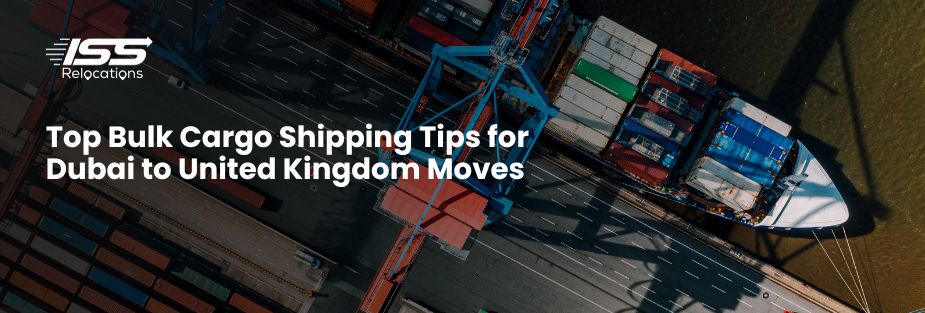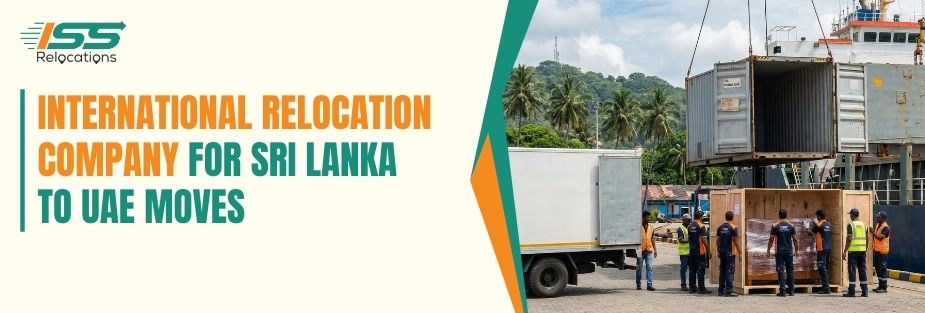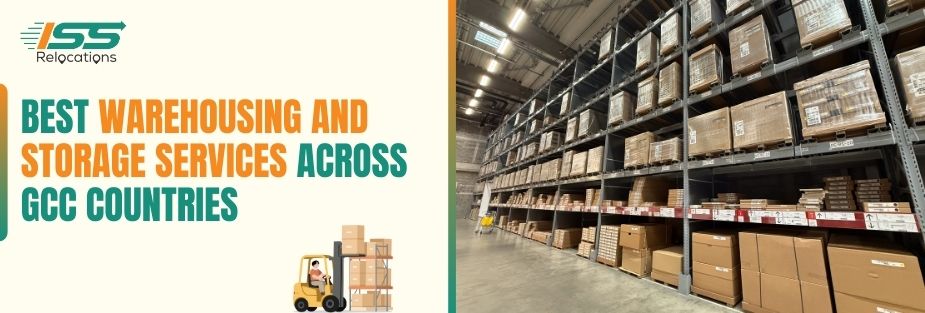
Top Bulk Cargo Shipping Tips for Dubai to UK Relocation
Efficiently moving goods across international borders requires meticulous planning, especially when transporting large quantities of unpackaged goods. Bulk Cargo Shipping is a vital aspect of global trade, enabling businesses to ship commodities like grains, coal, or liquids economically and reliably. The process is particularly crucial for trade routes such as Dubai to the United Kingdom, given the high volume of goods exchanged between these regions.
Dubai, as a significant hub for trade and logistics, plays a pivotal role in connecting industries worldwide. For businesses seeking to optimize their shipping processes, understanding the nuances of bulk cargo shipping is essential. From selecting the right shipping methods to ensuring compliance with international regulations, there are several factors to consider for a seamless experience.
In this article, we explore the key tips, strategies, and considerations for shipping bulk cargo between Dubai and the UK, helping businesses enhance efficiency and reduce operational costs.
Understanding Bulk Cargo Shipping
Bulk cargo shipping is a fundamental component of international trade, particularly for industries dealing with raw materials or large quantities of products. To better comprehend its significance, it’s crucial to explore its types and the pivotal role it plays in global commerce.
What is Bulk Cargo Shipping?
Bulk cargo shipping refers to the transportation of unpackaged goods in large quantities, typically loaded directly into the cargo hold of a vessel. This method is distinct from containerized shipping, which involves pre-packed goods transported in containers.
Two primary types of bulk cargo dominate this sector:
- Dry Bulk Cargo: Includes materials such as coal, grains, ores, and cement. These goods are typically non-liquid and require specialized handling equipment.
- Liquid Bulk Cargo: Refers to liquids such as crude oil, chemicals, and liquefied gases, which are transported in specially designed tanks.
Understanding these classifications helps businesses select the appropriate vessels and equipment to ensure the safe and efficient transport of their goods.
Why is Bulk Cargo Shipping Important?
Bulk cargo shipping is integral to sustaining the global supply chain. Industries worldwide rely on this method to move large quantities of raw materials and essential goods efficiently. For example, Dubai’s strategic location and advanced infrastructure make it a critical node for bulk cargo destined for Europe, including the UK.
As sustainable shipping becomes a priority for global logistics, developments like the Equinor and Maersk green fuel partnership are paving the way for more eco-friendly bulk cargo moves to the UK and beyond.
The advantages of bulk cargo shipping include:
- Cost Efficiency: Shipping in bulk significantly reduces the per-unit cost of transportation compared to other methods.
- Scalability: This approach accommodates the transportation of massive volumes, catering to industries that demand large-scale deliveries.
- Sustainability: Bulk shipments often have a lower environmental footprint per unit, making them a greener choice for businesses prioritizing sustainability.
Ship Bulk Cargo Safely
Get expert tips and reliable bulk cargo shipping services from Dubai to the United Kingdom for a smooth relocation.
Key Considerations for Bulk Cargo Shipping from Dubai to the UK
Shipping bulk cargo from Dubai to the United Kingdom involves several logistical and regulatory challenges. By addressing these considerations early in the planning process, businesses can avoid common pitfalls and ensure a smoother shipping experience.
Choosing the Right Shipping Method
The choice between sea freight and air freight is crucial for bulk cargo shipments. Sea freight is the most common method due to its capacity to handle large volumes and cost-effectiveness. Specialized vessels such as bulk carriers or tankers are tailored to the needs of dry and liquid bulk goods, respectively.
While air freight offers speed, its high costs make it less practical for bulk shipments. Businesses must weigh factors like shipment size, budget, and delivery timelines to decide the best method.
Ensuring Compliance with International Regulations
Adhering to customs and shipping regulations is critical when transporting goods between Dubai and the UK. This includes accurate documentation, such as:
- Bill of Lading: A key document that details the goods being shipped and serves as proof of ownership.
- Packing List: Outlines the specifics of the cargo for customs clearance.
- Commercial Invoice: Provides details of the transaction, including the value of the goods.
Failure to comply with these regulations can result in delays, penalties, or even confiscation of goods.
Packaging and Labeling for Safety
Proper packaging and labeling are essential to ensure that bulk cargo reaches its destination in good condition. Packaging should be sturdy and designed to withstand the rigors of international transport, while labels must include details such as the nature of the goods and handling instructions.
For liquid bulk shipments, specialized tanks or containers are required to prevent leakage or contamination. On the other hand, dry bulk cargo may require protective coverings to shield it from moisture and other environmental factors.
By prioritizing these key aspects, businesses can optimize their bulk cargo shipping processes, reduce risks, and enhance customer satisfaction.
Cost-Effective Strategies for Bulk Cargo Shipping
Effective cost management is a cornerstone of successful bulk cargo shipping. The sheer scale of these shipments can make inefficiencies costly, so adopting proven strategies to optimize expenditures is critical for businesses operating between Dubai and the United Kingdom.
Optimizing Shipping Routes
The choice of shipping routes has a significant impact on costs. By analyzing various routes, businesses can identify options that minimize transit times and fuel consumption. For instance, shipping from Dubai through the Suez Canal may be more cost-effective for certain destinations in the UK.
Additionally, understanding seasonal trends, such as peak demand periods or weather conditions, can help businesses select routes that avoid delays or premium charges, further reducing overall costs.
Partnering with Reliable Logistics Providers
Selecting the right logistics provider is key to cost-effectiveness in bulk cargo shipping. Experienced providers can offer competitive rates and additional services such as cargo consolidation, which reduces shipping expenses by combining shipments.
A trusted partner like ISS Relocations ensures seamless handling of bulk shipments while adhering to international standards. This not only streamlines the shipping process but also minimizes the risk of unexpected costs.
Implementing Risk Management and Insurance
Risks such as damage, delays, or loss during transit can result in unforeseen expenses. To mitigate these risks, businesses should invest in comprehensive insurance tailored to bulk cargo shipping.
Moreover, risk management strategies such as real-time monitoring and contingency planning enable businesses to address potential issues proactively, avoiding disruptions and additional costs.
Navigating Challenges in Bulk Cargo Shipping
Bulk cargo shipping is not without its challenges, especially when dealing with international routes like Dubai to the United Kingdom. Identifying and addressing these obstacles early ensures smoother operations and better outcomes.
Managing Transportation Risks
Transportation risks are inherent in bulk cargo shipping, especially for goods requiring specialized handling. Poor loading techniques, for instance, can cause uneven weight distribution, leading to damage during transit.
To mitigate these risks, businesses must invest in trained personnel and advanced equipment for loading and unloading operations. This reduces the likelihood of cargo damage and enhances the safety of the overall process.
Addressing Environmental Concerns
Sustainability is an increasingly important consideration in bulk cargo shipping. International regulations now mandate reduced carbon emissions and environmentally friendly practices during transportation.
By utilizing eco-friendly vessels and adopting fuel-efficient practices, businesses can minimize their environmental impact while staying compliant with global standards. This approach not only helps protect the planet but also positions companies as responsible trade partners.
Overcoming Documentation and Customs Hurdles
Navigating customs regulations can be complex, particularly when shipping large quantities of goods. Missing or incorrect documentation is a common challenge that can lead to delays and fines.
Implementing a robust documentation process and maintaining close communication with customs authorities in both Dubai and the UK can help businesses avoid such hurdles. Additionally, leveraging digital platforms for document management streamlines the process and reduces the risk of errors.
Call Our Cargo Experts
Leveraging Technology in Bulk Cargo Shipping
Technology has become a game-changer in bulk cargo shipping, enabling businesses to enhance efficiency and reduce operational bottlenecks. By integrating advanced systems into their processes, companies can achieve greater control and visibility over their shipments.
Using Real-Time Tracking Solutions
Real-time tracking systems have revolutionized bulk cargo shipping by providing live updates on shipment status. With GPS and IoT-enabled sensors, businesses can monitor cargo location, condition, and transit progress.
This level of transparency not only improves customer satisfaction but also allows businesses to identify and resolve issues promptly, such as rerouting shipments during unforeseen delays.
Embracing Digital Documentation
Digital documentation has simplified the complex paperwork involved in bulk cargo shipping. Platforms that enable the creation, sharing, and storage of shipping documents eliminate the need for physical copies, reducing administrative burdens.
Additionally, digital systems improve accuracy and ensure that all stakeholders have access to up-to-date information, minimizing the risk of errors or miscommunication.
Automating Communication and Coordination
Effective communication is essential for seamless bulk cargo shipping. Automated systems facilitate instant updates between shipping companies, ports, and clients, ensuring smooth coordination.
For example, cargo management platforms can notify stakeholders of shipment arrivals, customs clearances, or delays, enabling businesses to respond proactively and maintain efficient operations.
Wrapping Up
Bulk cargo shipping is an indispensable element of global trade, connecting businesses across borders with unparalleled efficiency. For companies shipping goods from Dubai to the United Kingdom, mastering the nuances of this shipping method is vital for success.
From selecting optimal shipping methods and ensuring compliance with international regulations to leveraging advanced technologies, the journey of bulk cargo shipping involves multiple critical decisions. Understanding and addressing the challenges associated with transporting bulk goods not only minimizes risks but also helps businesses streamline their logistics and optimize costs.
To achieve a hassle-free shipping services experience, partnering with a reliable logistics provider is key. ISS Relocations offers comprehensive services tailored to the needs of bulk cargo shipping, ensuring seamless operations and on-time deliveries. With expertise and a customer-first approach, ISS Relocations can simplify the complexities of global logistics, making it the ideal partner for your shipping needs.
Plan Stress-free Move with Top Moving Company in UAE - ISS Relocations

Frequently Asked Questions
What is bulk cargo shipping?
Bulk cargo shipping involves the transportation of large quantities of unpackaged goods, such as grains, coal, or liquids, directly in the cargo hold of a vessel. It is widely used in industries that require cost-effective solutions for moving large-scale commodities.
How is bulk cargo different from containerized shipping?
In bulk cargo shipping, goods are transported in their raw or unpackaged form, such as loose grains or liquids. In contrast, containerized shipping involves packing goods in standardized containers for transport.
What are the main types of bulk cargo?
Bulk cargo is categorized into two main types: dry bulk, such as minerals, grains, and coal, and liquid bulk, including oil, chemicals, and liquefied gases.
How can I ensure cost-effective bulk cargo shipping?
Cost-effective bulk cargo shipping can be achieved by optimizing shipping routes, collaborating with experienced logistics providers, and implementing real-time monitoring and digital documentation systems.
What are the key challenges in bulk cargo shipping?
Challenges include managing transportation risks, complying with international regulations, ensuring proper packaging, and addressing environmental concerns. Overcoming these challenges requires meticulous planning and execution.
What role does technology play in bulk cargo shipping?
Technology enhances bulk cargo shipping by providing real-time tracking, automating documentation, and facilitating instant communication between stakeholders, all of which improve efficiency and accuracy.
Why should I partner with a logistics provider for bulk cargo shipping?
Logistics providers, such as ISS Relocations, bring expertise, infrastructure, and end-to-end solutions that streamline the bulk cargo shipping process. Their services ensure smooth operations, compliance, and timely delivery.
Moving Company - Recent Blog
Stay informed and prepared for your next move with our latest blogs on moving services in the UAE. From expert packing tips to international relocation guides, ISS Relocations brings you up-to-date insights to make your moving experience smoother, safer, and stress-free.










